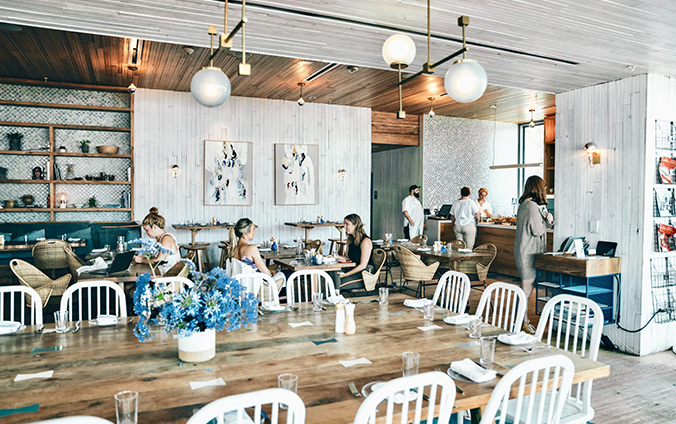Restaurant hygiene is an essential priority for management to consider in today’s world, now more than ever before. The pandemic has caused lockdown measures to close down many restaurant businesses with the exception of those who can provide a takeaway service.Although the pandemic and the restrictions which come with it appear to have gone on forever, the end is very much in sight. The success of developing a vaccine and a mass vaccination roll out underway across the world has left many optimistic of a return to normality and with that, the reopening of businesses, shops and restaurants alike.But are restaurants ready for the new post-pandemic world? There is no doubt the world will never be the same way it was previous to the pandemic. The pandemic has triggered a greater awareness of health and hygiene. People are now more conscious of their personal hygiene, the conditions of the environment around them, and especially restaurant hygiene. It falls upon all parties to ensure a clean environment is provided and maintained so people can be reassured it is safe for them to return.
Be sure to find out more on how Tweaq’s can enhance restaurant hygiene standards.
What is the problem with previous Restaurant Hygiene?
A study in 2009 found that when the restaurant industry slows down, cleanliness and restaurant hygiene is often “put on a back burner”. 85% of restaurants had been found to adopt a “do more with less” approach when it comes to restaurant hygiene[1]. Statistics also showed that 91% of decision makers in restaurants stated that this “do more with less” approach would most likely continue even after the economy improved.Although this was a number of years ago, the restaurant industry finds themselves in a similar situation to back in 2009 with the economic recession. Restaurant hygiene standards must be a top priority for businesses to ensure the safety of guests when lockdown restrictions allow restaurants to reopen again.
75% of consumers will not visit a restaurant with negative reviews about its cleanliness[2] and so every effort in safeguarding guests will be recognised. improving the customer experience by implementing effective measures that support high restaurant hygiene standards will have a positive impact on business.
While many restaurants will do this by providing hand sanitising facilities to all guests, the ability to ensure that the guests will use them is not guaranteed. Restaurants are commonly cleaned thoroughly at the end of every day and as, according to statistics, only one in five people globally wash their hands after going to the toilet [3], this would mean that in restaurant spaces, germs can continue to spread rapidly before any cleaning procedure takes place.
What’s a solution?
Tweaq has come up with one! Tweaq looks at a surface where people come into contact with in a restaurant setting more than others – a door handle. A conventional handle which can infect up to 60 percent of occupants in a single building[4].

Tweaq has “tweaq-ed” a door handle and turned it into a state of the art piece of smart technology. The world’s first self disinfecting door handle called “Rise”. Implements smart IoT technology to take over the responsibility of maintaining clean touch points in all restaurant settings. The need for staff to continuously clean after customers use door handles will no longer be an issue – just leave the smart technology to it.After a person has used Rise, the handle is activated by the internal sensors, triggering the engine inside the handle to complete the disinfection process eliminating 99.9% of bacteria and viruses in just under 3 seconds.Rise can drastically mitigate the risk of foodborne diseases spreading as many harmful foodborne viruses such as the norovirus can be spread via indirect contact. Throughout the day a person can touch numerous surfaces with contaminated hands. These viruses can survive for days, whereas the norovirus could survive for weeks![5] Anyone who comes into contact with a contaminated surface is at real risk.Tweaq’s revolutionary door handle is a perfect solution to the need for better restaurant hygiene as it can guarantee to reduce the spread of diseases and infections via contact with touch points and protect both staff and customers.

